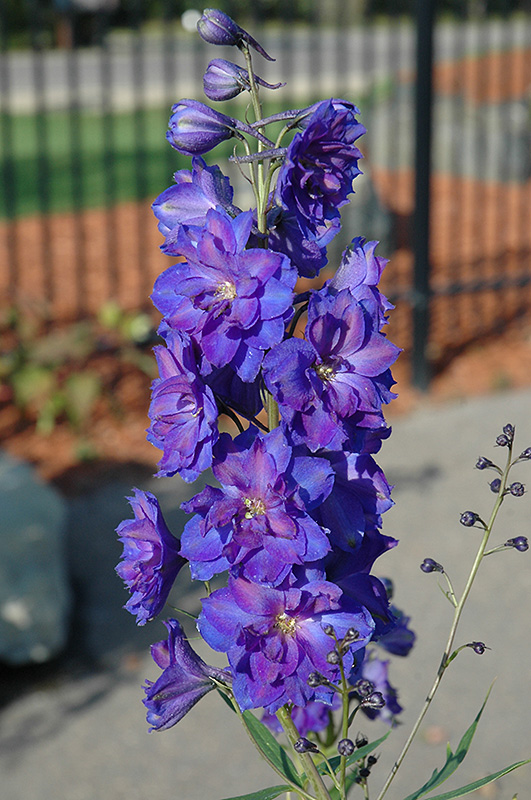VANDERMEER
PLANT LIBRARY
Find the perfect plant for your space by browsing through this extensive selection that we typically carry every year.
This library is for information purposes only.
Pagan Purples Larkspur
Delphinium 'Pagan Purples'
Plant Height: 4 feet
Flower Height: 6 feet
Spacing: 18 inches
Sunlight:
![]()
Hardiness Zone: 3a
Group/Class: Pacific Giant Series
Description:
A vigorous growing selection producing tidy, low growing mounds of green foliage with tall, sturdy flower stems covered in purple semi-double flowers; excellent addition to garden beds or fresh-cut arrangements; easy to grow, requiring little maintenance
Ornamental Features
Pagan Purples Larkspur features bold spikes of semi-double purple flowers with black eyes rising above the foliage from early to mid summer. The flowers are excellent for cutting. Its deeply cut lobed leaves remain dark green in colour throughout the season.
Landscape Attributes
Pagan Purples Larkspur is an herbaceous perennial with a rigidly upright and towering form. Its relatively fine texture sets it apart from other garden plants with less refined foliage.
This plant will require occasional maintenance and upkeep, and should be cut back in late fall in preparation for winter. It is a good choice for attracting bees and butterflies to your yard. Gardeners should be aware of the following characteristic(s) that may warrant special consideration;
- Insects
- Disease
Pagan Purples Larkspur is recommended for the following landscape applications;
- Vertical Accent
- Mass Planting
- General Garden Use
Planting & Growing
Pagan Purples Larkspur will grow to be about 4 feet tall at maturity extending to 6 feet tall with the flowers, with a spread of 24 inches. When grown in masses or used as a bedding plant, individual plants should be spaced approximately 18 inches apart. It tends to be leggy, with a typical clearance of 1 foot from the ground, and should be underplanted with lower-growing perennials. The flower stalks can be weak and so it may require staking in exposed sites or excessively rich soils. It grows at a medium rate, and under ideal conditions can be expected to live for approximately 10 years. As an herbaceous perennial, this plant will usually die back to the crown each winter, and will regrow from the base each spring. Be careful not to disturb the crown in late winter when it may not be readily seen!
This plant should only be grown in full sunlight. It prefers to grow in average to moist conditions, and shouldn't be allowed to dry out. It is not particular as to soil type or pH. It is somewhat tolerant of urban pollution. This particular variety is an interspecific hybrid. It can be propagated by division; however, as a cultivated variety, be aware that it may be subject to certain restrictions or prohibitions on propagation.





